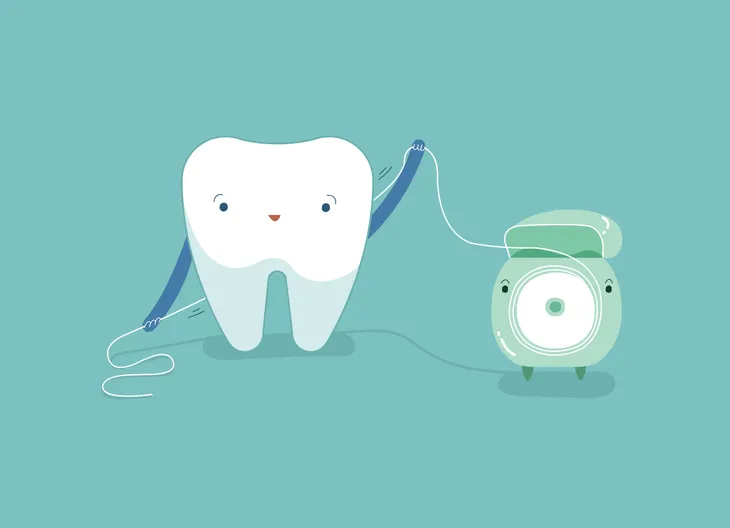Sure, we’re all aware that flossing keeps your teeth safe from cavities and your gums clear of gingivitis and decay. However, that clear little spool of floss does more than keep the spinach out of your smile—it can protect your heart, your joints, and even help you lose weight.
Here are eight flossing benefits that you’ve probably never associated with your health…
1. Improves Immunity
Did you know that flossing can actually protect you from germs and infection—beyond the gum line? It’s true; if excess bacteria accumulate on the teeth and gums, it can quickly travel through your throat to other parts of your body, such as the lungs, causing a severe case of chronic asthma or pneumonia. So if you’re prone to upper respiratory infections, like bronchitis, you best be vigilant with your oral health.
2. Prevents Obesity
Trying to shed some pounds? I bet you would never guess that flossing is better for you than crash dieting. In fact, studies link plaque (or periodontal gum disease) to higher body fat. That means what you eat, and particularly what remains on your teeth after you eat, all contributes to weight gain.
3. Flossing Lowers Risk of Stroke
Medical researchers link oral health to heart health. Why? Because patients who suffer tooth decay and gum disease are more likely to fall victim to a stroke. So flossing, in essence, keeps your heart ticking strong and healthy.
4. Protects Your Unborn Child
If you’re expecting, you already know that what you eats nourishes your baby. Well it so happens that the more bacteria you have on your teeth and gums; the higher your chances will be of delivering your baby prematurely. In addition, women trying to get pregnant can delay conception significantly if they suffer from gum disease.
5. Helps Manage Blood Sugar
If your diabetic chances are you have gum disease (or periodontitis). Beyond the condition itself, studies show that diabetics who brush and floss regularly have more manageable blood sugar levels and glycemic control. So in addition to insulin, you should be flossing daily.
6. Soothes Arthritis Pain
If you suffer from joint pain and inflammation due to existing arthritis or joint troubles, flossing will prevent further joint irritation and even infection that can spread from inflamed gums (or gingivitis) to the major joints via the bloodstream. So if you notice increased joint pain, floss to see if it soothes your arthritis symptoms.
7. Reduces Risk of Alzheimer’s
You were told as a child that taking good care of your teeth when young would be beneficial in old age. Well it turns out that adage referred to more than keeping your pearly whites intact. Studies now link tooth decay and tooth loss before the age 35 to a heightened risk of Alzheimer’s disease.
8. Improves Sexual Function
Listen up gentleman! According to a study published in the Journal of Periodontology, flossing can improve your antics in the bedroom, particularly if you suffer from erectile dysfunction. In fact, males who suffered from gum disease had a higher chance of impotence due to excess bacteria in the bloodstream.











